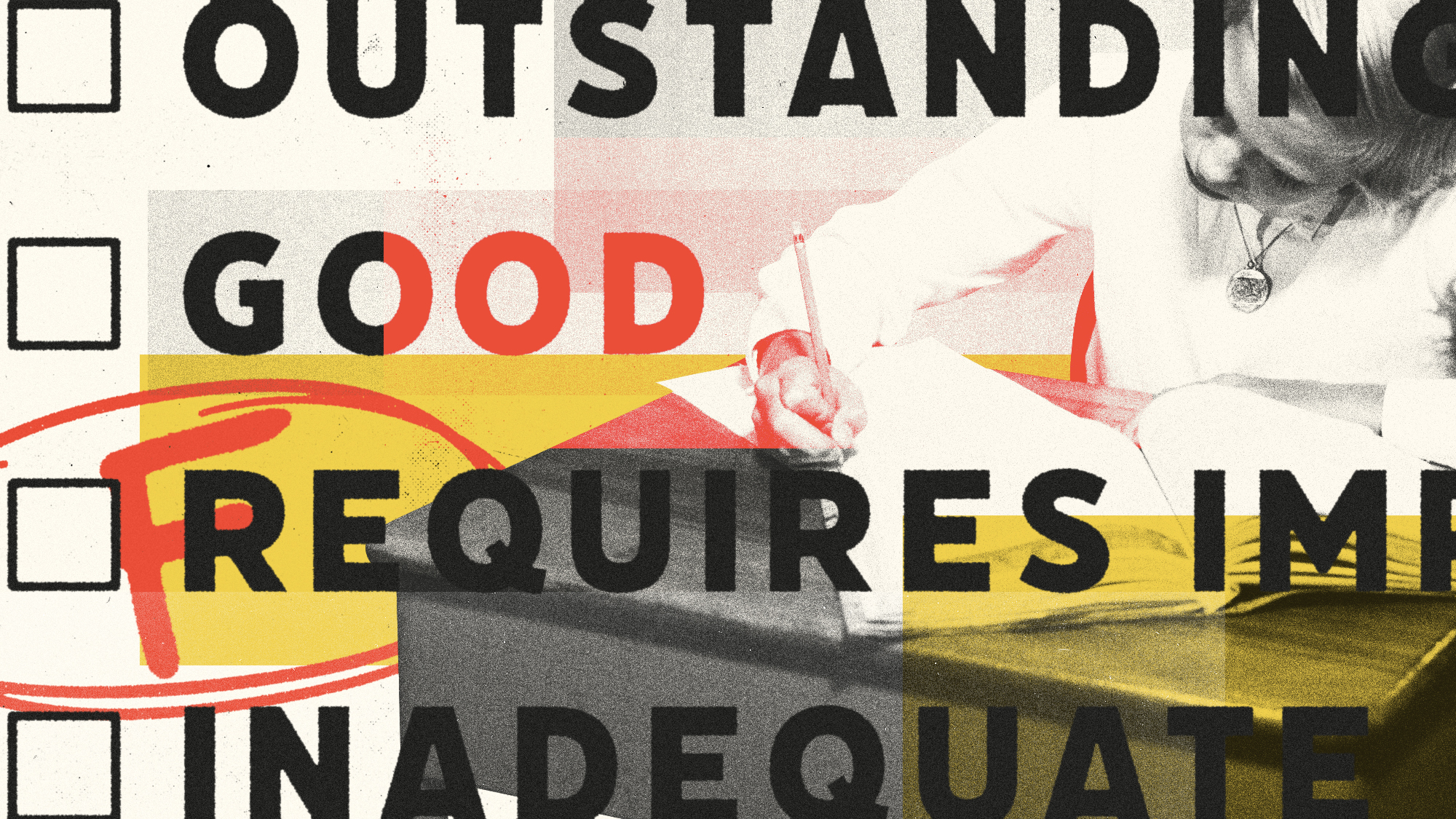Why have Ofsted scrapped one-word school ratings?
Watchdog's controversial gradings to be replaced by new 'report cards'

A free daily email with the biggest news stories of the day – and the best features from TheWeek.com
You are now subscribed
Your newsletter sign-up was successful
Single-word Ofsted ratings for state schools will be scrapped with immediate effect as part of "radical" changes announced by the government.
The four gradings currently awarded by Ofsted inspectors – "outstanding", "good", "requires improvement" and "inadequate" – will be replaced by "report cards". These will be "aimed at improving standards and helping parents to better understand schools' strengths and weaknesses", said The Guardian.
Education and teaching bodies have welcomed the reforms, which were promised by Labour before the election.
The Week
Escape your echo chamber. Get the facts behind the news, plus analysis from multiple perspectives.

Sign up for The Week's Free Newsletters
From our morning news briefing to a weekly Good News Newsletter, get the best of The Week delivered directly to your inbox.
From our morning news briefing to a weekly Good News Newsletter, get the best of The Week delivered directly to your inbox.
The changes follow the suicide of primary school headteacher Ruth Perry after an Ofsted report downgraded her Caversham Primary School in Reading from "outstanding" to "inadequate" over safeguarding concerns. Last year, a coroner's inquest found the inspection process had contributed to her death.
Perry's sister, Professor Julia Waters, who has campaigned for the elimination of these one or two-word judgments, said that her family was "delighted" with the proposed changes.
Bridget Phillipson, the education secretary, called the reforms a "landmark moment for children, parents and teachers". "Single-headline grades are low-information for parents and high-stakes for schools. Parents deserve a much clearer, much broader picture of how schools are performing – that's what our report cards will provide," she said.
What did the commentators say?
"There has been fierce debate for years about whether one overall grade can sum up the complexity of a school," said the BBC. The argument for a single-word rating is that "they give parents an overview at a glance, with more detail available in the longer report, which is usually a few pages".
A free daily email with the biggest news stories of the day – and the best features from TheWeek.com
Former Ofsted chief inspector Amanda Spielman said parents appreciated the "simplicity and clarity" of the overall rating, but that the system had become "more of a problem than a help". And the debate surrounding the use of single-headline grades only "intensified" after the inquest into Perry's death. Coroner Heidi Connor said the "transparency and ease" of the overall grading system was not balanced with the welfare of teachers and education staff.
Labour has "long been in favour of reforming school inspections", said the i news site, although the current grades were introduced by Labour in 2005. Later, under Jeremy Corbyn's leadership, Labour promised to "abolish Ofsted altogether". Starmer has "rowed back from that position". But with the party's strong links to the public sector and the unions, "Labour has remained sympathetic to arguments that the 'high stakes' school accountability system is simply too punitive and contributes to other problems in the sector, most notably trouble recruiting and retaining teachers".
But while Phillipson "clearly believes she can achieve more by having good relations with the sector and getting the government, school leaders and unions to all pull in the same direction", the danger for Labour is if the move "becomes framed as the government caving into vested interests at the expense of parents and children".
Indeed, some opposition members have already voiced concerns that eliminating the one-word grading system could reduce school accountability and lead to a decline in educational standards.
Damian Hinds, the Conservative shadow education secretary, said that while the current grading system may need improvement, "scrapping the headline inspection outcome is not in the best interest of pupils or parents".
What next?
The Department for Education (DfE) has announced that for the current academic year, schools will receive four separate grades across existing sub-categories: quality of education, behaviour and attitudes, personal development, and leadership and management.
But by September 2025, parents will be able to access a new "report card" that provides detailed descriptions of what inspectors have found at a school, according to the BBC. The changes will be funded by government plans to eliminate VAT exemption for private schools.
Labour has remained "vague" about the specifics of these report cards, said i news. The DfE stated that the design and content of the report cards will be developed over the coming months, following consultation with parents and schools.
Sorcha Bradley is a writer at The Week and a regular on “The Week Unwrapped” podcast. She worked at The Week magazine for a year and a half before taking up her current role with the digital team, where she mostly covers UK current affairs and politics. Before joining The Week, Sorcha worked at slow-news start-up Tortoise Media. She has also written for Sky News, The Sunday Times, the London Evening Standard and Grazia magazine, among other publications. She has a master’s in newspaper journalism from City, University of London, where she specialised in political journalism.
-
 6 of the world’s most accessible destinations
6 of the world’s most accessible destinationsThe Week Recommends Experience all of Berlin, Singapore and Sydney
-
 How the FCC’s ‘equal time’ rule works
How the FCC’s ‘equal time’ rule worksIn the Spotlight The law is at the heart of the Colbert-CBS conflict
-
 What is the endgame in the DHS shutdown?
What is the endgame in the DHS shutdown?Today’s Big Question Democrats want to rein in ICE’s immigration crackdown
-
 How are Democrats turning DOJ lemons into partisan lemonade?
How are Democrats turning DOJ lemons into partisan lemonade?TODAY’S BIG QUESTION As the Trump administration continues to try — and fail — at indicting its political enemies, Democratic lawmakers have begun seizing the moment for themselves
-
 ‘Those rights don’t exist to protect criminals’
‘Those rights don’t exist to protect criminals’Instant Opinion Opinion, comment and editorials of the day
-
 How did ‘wine moms’ become the face of anti-ICE protests?
How did ‘wine moms’ become the face of anti-ICE protests?Today’s Big Question Women lead the resistance to Trump’s deportations
-
 How are Democrats trying to reform ICE?
How are Democrats trying to reform ICE?Today’s Big Question Democratic leadership has put forth several demands for the agency
-
 ‘The sport is still run on a shoestring’
‘The sport is still run on a shoestring’Instant Opinion Opinion, comment and editorials of the day
-
 Reforming the House of Lords
Reforming the House of LordsThe Explainer Keir Starmer’s government regards reform of the House of Lords as ‘long overdue and essential’
-
 Why is Tulsi Gabbard trying to relitigate the 2020 election now?
Why is Tulsi Gabbard trying to relitigate the 2020 election now?Today's Big Question Trump has never conceded his loss that year
-
 How long can Keir Starmer last as Labour leader?
How long can Keir Starmer last as Labour leader?Today's Big Question Pathway to a coup ‘still unclear’ even as potential challengers begin manoeuvring into position